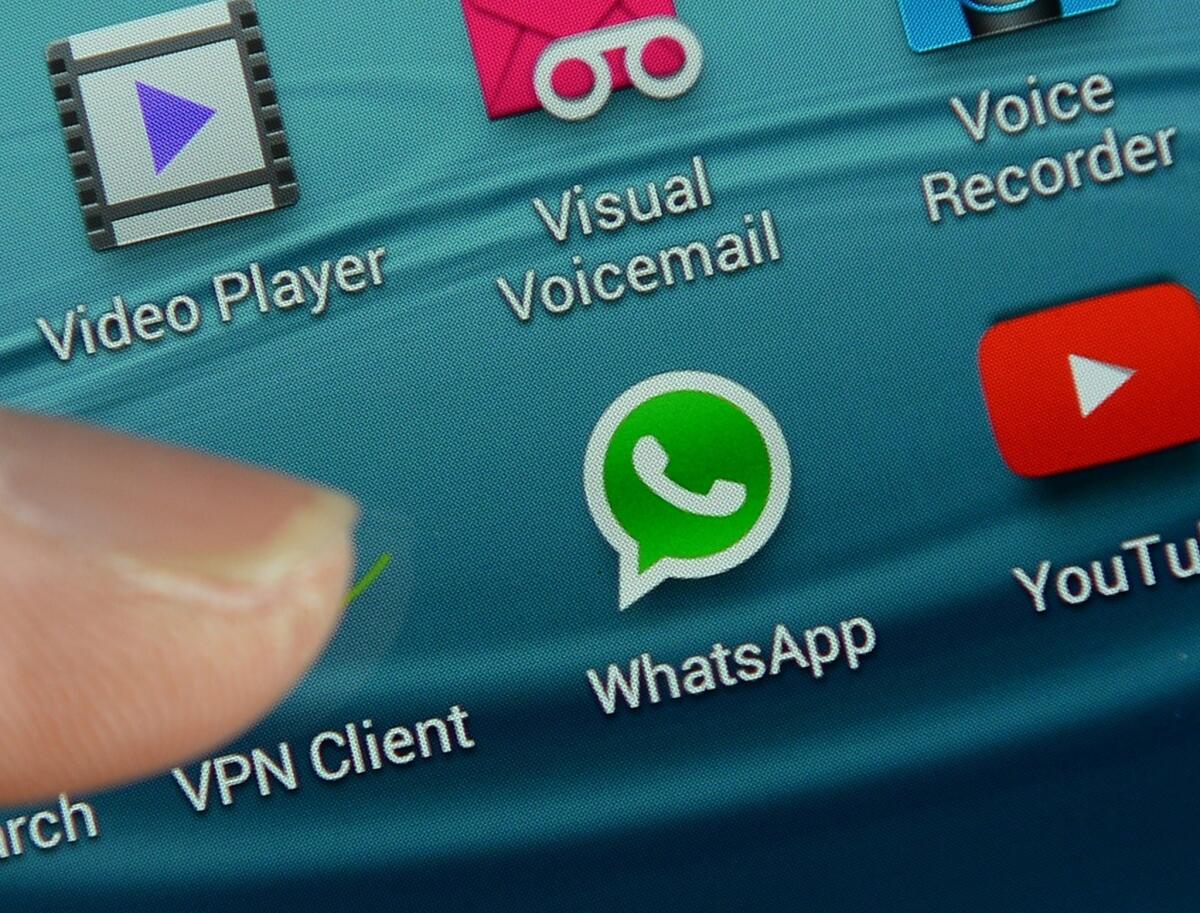Powerball, WhatsApp and the rise of the lucky few

- Share via
On Thursday morning, a lucky person (or more than one) woke up $425 million richer, having purchased the winning Powerball ticket. On Wednesday, several lucky people behind the messaging app WhatsApp went home $19 billion richer, having seen their company bought by Facebook.
So, here’s a question for the rest of us — labeled, for lack of a better term, “losers”: What’s the difference between them and us?
OK, sure, there’s the obvious: The Powerball winner put in a few bucks and got lucky, and we didn’t. Not much planning or brainpower involved. The guy could be dumb as a brick, a lazy slob, an average Joe or a Silicon Valley whiz kid. Doesn’t matter: Lady Luck smiled on him.
The WhatsApp folks, on the other hand, are presumably bright. And worked long and hard to develop their app. And had other folks backing them with lots of bucks: Sequoia, a venture capital firm, invested $60 million in WhatsApp, according to the New York Times. Some of those same qualities may apply to us; some don’t. You can be your own judge.
In other words, they made their money the old-fashioned way, right? They earned it.
But somehow, doesn’t the Powerball windfall and the WhatsApp windfall feel the same? Of the millions who play Powerball, only a tiny few win big. And of the millions who develop apps, only a tiny few — well, you know, win big. And of the apps that succeed, an even tinier few find a Facebook friend with $19 billion burning a hole in its pocket.
Heck, you probably don’t know what WhasApp is, or does. (PC magazine has a good primer online.)
And that’s why the WhatsApp deal bothers me. Sure, I’m happy for its founders’ success; hard work and all pays off.
But it’s also a sign of what’s out of whack in America today: $19 billion for a company that created a better way to send texts and the like on smartphones? I mean, it’s not exactly a cure for cancer now, is it? How does it create jobs? How does it boost the economy as a whole? How does it help Joe Average American? Doesn’t it just mean that a lucky few — kinda like our lucky Powerball winner — will have more money than they know what to do with, and the rest of us will go back to our normal, just-trying-to-get-by daily routines?
(Not to mention that Facebook didn’t pay that kind of money just so it can rake in the 99 cents that each user pays to download it. No. It wants access to those users’ information. And don’t we have enough privacy issues as it is?)
So, toast the lucky Powerball winner. Toast the lucky WhatsApp winners.
But somehow, I can’t help feeling that, at the end of the day, the rest of us are, well, losers.
ALSO:
‘Social hosts,’ beware the booze you serve to minors
On eggs, hens and cages, Missouri is wrong and California is right
Water expert Jay Famiglietti’s mission: to rescue us from our bad habits
Follow Paul Whitefield on Twitter @PaulWhitefield1 and Google +
More to Read
A cure for the common opinion
Get thought-provoking perspectives with our weekly newsletter.
You may occasionally receive promotional content from the Los Angeles Times.











